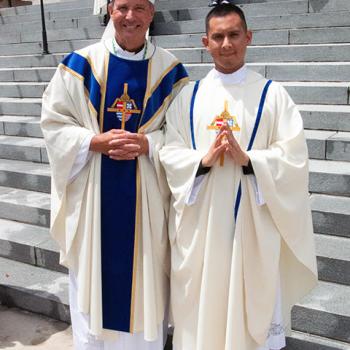I was in my late twenties when I discovered a real purpose for my life. Until then, everything I did, I did provisionally. I was the kind of person who sits in the back of the room, close to the door, in case I wanted to leave. When I got married, I crafted the vows so that there was no mention of 'for better or worse,' and though I had what seemed to most people to be a worthwhile career, I always felt more comfortable taking it one day at a time. Like so many people in their teens and twenties, I kept waiting to find the one thing that seemed worth throwing myself into wholeheartedly.
For me, that turned out to be the spiritual journey. When I discovered the power of the inner world, my life changed so radically that I sometimes think of myself as having had two different lifetimes. The first as a wayward seeker of happiness dabbling in journalism and serial monogamy, the other as a focused, serious spiritual practitioner, disciple, monk, and teacher. The difference was commitment. Wholehearted commitment: first to my own spiritual development, and secondly to a specific teacher and path.
Over time, of course, the intensity with which I pursue my practice has spiraled—sometimes wavering, sometimes deepening, always unfolding. My teacher died, and eventually I left his organization. My personal path has morphed, and so have the externals of my journey. But the original decisive commitment remains, and when I look back at my life, it's blindingly obvious that it was the commitment itself which pulled me through the rough patches of my inner and outer life, which inspired me to practice the basic disciplines of practice and character development, and which is responsible for whatever personal power and depth I've managed to achieve. That commitment defines my life.
That's both the good news and the bad news about commitment. The commitments you make define you. They make you who you are. Which means that they're not to be taken lightly.
The Wikipedia dictionary defines a commitment as an interaction that involves obligation. A commitment is essentially an agreement to keep showing up—showing up even when you'd rather not, even when you're in a bad mood, even when it's inconvenient. (In Hebrew, tellingly, the word for commitment is the same as the word for love, and there's a good case to be made for the assumption that the two are pretty much the same thing!)
The thing we all know about commitment is that it's only when you are willing to show up from that unconditional place that you create the possibility of mastery and growth, of genuine intimacy, of creative and spiritual breakthrough. Alfred Adler was writing about marriage when he said, "If men or women contemplate an escape, they do not collect all their powers for the task." He could just as easily have been writing about creative work, or professional mastery, or yoga.
Take meditation practice, something I know quite a lot about. When I teach a class I always start by asking people if they meditate. About half the room will raise their hand. Then I ask them how much they meditate. "Five minutes at the end of yoga class? Every few weeks? Several times a week? Every day?" Very often, the ones who meditate occasionally, or for a few minutes at the end of class, have as much or more of a problem getting into meditation as the beginners. They can't sit still without physical discomfort, their thoughts don't seem to quiet down. And because sitting for meditation doesn't immediately feel good, they tend to assume that it isn't for them, that it's too much trouble, and that meditation's reputation is mostly hype. So they don't sit for long enough, or regularly enough to break through into the practice.
Paradoxically, when you approach a task half-heartedly, any obstacle will tend to seem insurmountable. In India, they use an analogy of digging a well. If you dig ten feet, find no water, and decide to dig somewhere else, you'll end up with twenty holes, but no water. It's our commitment to keep digging in one place that allows our effort to bear fruit. With meditation, as with marriage, you can't say, I'll try this and if I turn out to be good at it I'll keep going, otherwise I'll try something else. Of course you can say it, but then you won't have much of a practice or a marriage.
True, there are spiritual geniuses who 'get' meditation after ten minutes, just as there are natural athletes and musical prodigies who can pick up any instrument and play a tune. But the truth is that when you want to discover the secrets that meditation can reveal, you need to practice, just the way you might practice your tennis serve or your skill at solving math problems. And, if you're going to practice successfully, you probably need to have made it a priority, a commitment, because like anything else you do, there will be times when meditation is just so hard, so dry, so apparently uninspired that it's hard not to get up from the mat and get on with your day.





